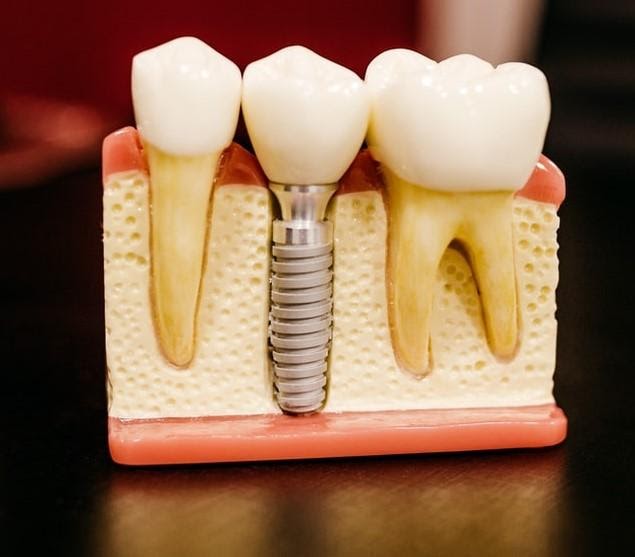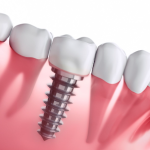Dental implants are solid screw-like replacements for tooth roots. Made from body-friendly materials—such as titanium—they are a long-term solution for damaged tooth roots or nerves. Dental implants are a major surgical procedure, as the implants must be physically placed inside the jawbone. They are a sturdy foundation designed to accommodate dental crowns, bridges, or dentures. If you’ve been experiencing tooth pain or difficulty eating on a daily basis, it may be time to speak to your dentist about dental implants and know more about implants.
Book a dental appointment
Before you do anything else, book an appointment with your dentist. Tell them what’s going on, where the pain or discomfort is located, and suggest the idea of dental implants. To determine your physical eligibility, your dentist will carry out a full mouth examination, using X-rays to examine the affected area or areas. This will inform whether there is capacity to accommodate (a) dental implant(s). Moreover, your dentist will consider personal factors, such as your jaw’s bone density, your commitment to your health (oral and otherwise), or whether you suffer from periodontal disease. If you fall short in any of the above (or suffer from the aforementioned disease), you may not be eligible for dental implants. The procedure is also completely out of the question for smokers.
Your dentist will help you get to the tooth of the matter.
Single versus multiple dental implants
Ideally, you will only need one dental implant. The quantity required will determine the duration of your procedure, though it generally takes less than an hour to install a single implant. Once your dentist installs the implant, your bone will grow onto it. This is the accommodating process of osseointegration. If you require multiple implants, the procedure will naturally take longer, but you will benefit from a remarkably strong foundation for bridges or dentures. If you need to remove an entire set of top or bottom teeth, the dentist may install the implant deeper than usual to better support an entire denture.

Dental implants: for when your teeth roots say, “screw this—I’m outta here!”
Other things to note
To cover the nitty-gritty: throughout the procedure, you will be under local anaesthetic. It is a painless procedure, and discomfort will generally dissipate quickly. After your implant has fully integrated with your jaw—around the three-month mark—your dentist will then fit your new dental crown. The procedure has an extremely high success rate of 98%. Dental implants will typically last between five and fifteen years, but if you commit to a thorough dental care routine, they can last your whole life.

It’s a straightforward procedure with minimal discomfort.
What’s the damage?
No, we’re not talking about the dental damage. We’re talking about how much dental implants will cost out-of-pocket. Unfortunately, there isn’t a straight-forward answer. Out-of-pocket costs will depend on a number of variables, the foremost being whether or not you have private health insurance. It will also depend on implant quantities and materials, as well as surgical requirements. For example, private health insurance may not cover cosmetic surgery, which is often non-essential.

Hopefully your clean bill of oral health will not wipe you clean.
Benefits of dental implants
Dental implants are deeply embedded in the jaw, so you may indeed forget that your new artificial tooth/teeth are not your own. Because they fuse with the jawbone, you won’t need to maintain them or worry if they’re a poor ‘fit’. This is an issue you may encounter with dentures, which can slip and consequently slur your speech. With dental implants, you will be free of dental pain, and you will be gifted with a bigger smile, improved speech, and a renewed self-confidence. Chewing will no longer be a chore, allowing you to enjoy your food more—on the proviso that you commit to a thorough and regular dental care routine.

Side effects may include bigger smiles and renewed self-confidence (when combined with a thorough and regular dental care routine).
I believe in creativity and try to express the same with my words. I enjoy writing and keeping myself in touch with the books.







